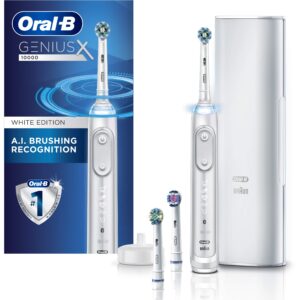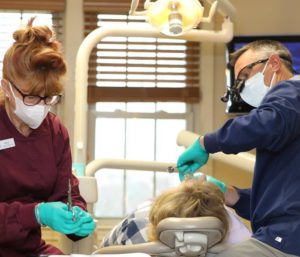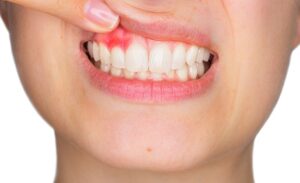DENTAL HEALTH FOR LIFE – PART 3
October 14, 2024
 In the first segment of this series, the discussion involved the role of caregivers in early dental care. Prevention starts as early as 6 months into pregnancy and continues with essential steps early in a child’s life. The second segment discussed dental care for children as they develop. In this final segment I will discuss easy prevention and maintenance steps to take to help ensure dental health for a lifetime.
In the first segment of this series, the discussion involved the role of caregivers in early dental care. Prevention starts as early as 6 months into pregnancy and continues with essential steps early in a child’s life. The second segment discussed dental care for children as they develop. In this final segment I will discuss easy prevention and maintenance steps to take to help ensure dental health for a lifetime.
As I stated a few weeks ago, in preventive-based dental practices we go far beyond saying to patients, “you need to brush and floss more.” We truly believe that dental disease, both dental caries (cavities) and gum disease, is very preventable. However, we recognize that not every individual is equal when it comes to susceptibility. Each person presents with their own unique genetic pool, good and bad habits, number and position of teeth, and willingness to truly make a change. The one constant is that most of us have room for improvement.
Here are 4 simple things that will help maintain dental health for a lifetime:
Professional Maintenance – It is easy to put professional hygiene visits on the backburner. We are pulled in many different directions in life, and the absence of pain in our mouths sometimes grants us permission to skip regular dental appointments. Some people will use the excuse of lack of insurance for not going on a regular basis. The most important thing you can do to prevent dental disease is to commit to a lifetime of professional dental visits. This is a choice. Your cell phone costs more per year than these visits will. Some people require four visits a year to maintain health and others may only require one. There are no set rules. However, it is up to you to make the commitment.
Home Care – Most people have significant room for improvement with their home care. Coaching, in anything, increases an individual’s potential for improvement. Think of us as your dental coach. We routinely ask patients to bring their toothbrushes with them to their appointments to review technique. As simple as it sounds, constant evaluation and improvement of your home care can only decrease your chances of dental disease.
Diet – What we put in our mouths, when we do it and how often are all choices as well. As with everything, some people can get away with things that others cannot. Decay rates are different for different people and can change during the course of a lifetime. This is an important topic to routinely discuss at regular visits.
Dental Orthotics – This is in reference to any oral appliance, typically worn while sleeping, but sometimes there are some worn during the day. This is another situation where absence of any symptoms sometimes allows us to ignore what is really going on. It is easy to get someone to wear an appliance in their mouth if they present with TMJ issues or headaches. On the other hand, it is often difficult to convince someone to routinely wear a nighttime appliance if they have no symptoms. For example, people who have had braces should be wearing retainers. People who have sleep apnea may have the option of wearing an oral appliance to treat this problem and sleep better. However, those who have evidence of clenching and/or grinding are the most undertreated. It is my firm belief that if more people committed to unfailing routine use of a properly made nighttime appliance (if they show any indications they need it), many potential dental problems would be avoided.
I believe that most dental disease is preventable. What it takes to prevent dental disease in one person may very well not be the same for another. Choose and commit to these four things and you are guaranteed fewer dental problems over your lifetime.
Dr. St. Clair maintains a private dental practice in Rowley dedicated to health-centered family dentistry. He has a special interest in treating snoring, sleep apnea and TMJ problems. If there are certain topics you would like to see written about or questions you have please email them to him at jpstclair@stclairdmd.com
DENTAL HEALTH FOR LIFE – PART 2
October 7, 2024
 Last week’s column was about oral care for mothers-to-be and babies. Preventive care truly does start before birth. This week we journey past those early years of life.
Last week’s column was about oral care for mothers-to-be and babies. Preventive care truly does start before birth. This week we journey past those early years of life.
In preventive-based dental practices we go far beyond saying to patients, “you need to brush and floss more.” We truly believe that dental disease, both dental caries (cavities) and gum disease, is very preventable. However, we recognize that not every individual is equal when it comes to susceptibility. Each person presents with their own unique genetic pool, good and bad habits, number and position of teeth, and willingness to truly make a change. The one constant is that most of us have room for improvement.
It goes without saying that preventive care includes regular visits to the dentist. Based on my experience, even many of those who visit the dentist on a regular basis have significant room for improvement. However, it is up to your caregivers, hygienists and dentists, to have that preventive frame of mind to go beyond just telling you to brush and floss more.
Technique is vital when it comes to home care. Although daily removal of plaque (the thin, sticky film of bacteria that creates cavities and gum disease) can be accomplished with a manual toothbrush, the proper power toothbrush is more appropriate and effective for most people. We routinely ask patients to bring their toothbrushes with them to their appointments to review technique. The same goes for the water pik. Think of your dentist and/or hygienist as your dental coach. Coaching, in anything, increases an individual’s potential for improvement.
The same approach goes for kids. Although we do the same thing with children, they need that additional coaching from home. The best way to guide your family to good oral health is to lead by example. Parents should supervise toothbrushing by children younger than age 8 to make sure they are doing a thorough job. This also goes for flossing. This is done until the child is consistently getting good homecare reports at dental visits.
The challenge of good home care increases with the addition of braces. Children and adults in braces need extra coaching on technique and more time spent on their daily routine. I am a firm believer that preventive visits to the dentist should increase during orthodontics. There is too much at risk during this time and the extra professional care and coaching are vital to escaping the pitfalls of poor homecare while braces are on.
As life goes on, your genetic make-up, the amount of professional care and coaching you receive, your effectiveness at home, and your willingness and ability to improve, will shape your oral health. The fact of the matter is, there are those who need more professional care and more rigorous homecare than others.
As I stated earlier, I believe that most dental disease is preventable. What it takes to prevent dental disease in one person may very well not be the same for another. Between finding the right fit with a dental office, utilizing the coaching expertise of those individuals, using the right homecare products, and always striving to improve, excellent oral health for a lifetime is possible.
In the final segment of this series next week, I will discuss some simple ideas to maintain good dental health for your entire adult life. It is simpler than you think.
Dr. St. Clair maintains a private dental practice in Rowley dedicated to health-centered family dentistry. He has a special interest in treating snoring, sleep apnea and TMJ problems. If there are certain topics you would like to see written about or questions you have please email them to him at jpstclair@stclairdmd.com
THE END IS NEAR
September 23, 2024
September is almost over! It’s crunch time to get everything done that we haven’t gotten done during the rest of the year. For those with remaining dental benefits, it’s also the time of year to consider utilizing those so you don’t lose them.
Unused dental benefits go directly back to the insurance company, which generates hundreds and hundreds of thousands of dollars for the insurance companies each year. Dental insurance companies count on the fact that many people will not claim their $1000 or so in benefits by the end of the calendar year. Those with dental benefits should look for legitimate means to use these benefits before they are lost.
For example, perhaps a crown has been recommended by your dentist, but you have procrastinated about it. It would make sense to consider using those dental benefits before the end of the calendar year. This allows a whole new round of dental benefits to be used for unexpected dental needs the following year, and maximizes the value of the premiums paid.
Remember, insurance companies are in the business to make money. They don’t want you to use your dental benefits. If the balance (co-payment) you will owe for the dental work that needs to be done is too much for you, consider financing options through your dental office. Most dental offices offer interest-free financing to patients for up to 12 months. Financing your balance in this way may make more financial sense than throwing money away to fund the insurance company’s pocketbooks.
Another thing to consider as the end of the year approaches is the use of flex spending accounts. Many employers now offer pre-tax flex spending accounts for healthcare expenses. Often underutilized, these are excellent mechanisms for saving about 20 percent on needed dental care. If you are paying for your dental insurance premiums, it may even make sense to fund an available flex spending account with that premium money instead of, or in conjunction with it.
For instance, if you are anticipating the need for $3000 in dental care, opting to place the $3000 in a flex spending account can save the income tax on those monies and can usually be used as soon as January 1st. If you have money left in a flex spending account, remember to check with your employer to determine if that money needs to be used by the end of the year. You don’t want to lose that money either.
As you begin to make financial decisions for the end of this year and for the upcoming year, consider a discussion with your dental office’s financial person. They are often an untapped wealth of information and can usually thoroughly and knowledgeably discuss your dental financial options with you.
And, don’t wait too long. Dental office schedules get full quickly this time of year with patients trying to use dental insurance benefits and unused flex account money. Maximize your hard-earned dollars.
Dr. St. Clair maintains a private dental practice in Rowley dedicated to health-centered family dentistry. He has a special interest in treating snoring, sleep apnea and TMJ problems. If there are certain topics you would like to see written about or questions you have please email them to him at jpstclair@stclairdmd.com
GO ELECTRIC
September 16, 2024
Like many dental practices today, our office sends an email request for patients to leave comments about their visit to our office. Most comments are positive, for which we are grateful. However, all comments are helpful to the business to understand what patients are thinking. If one person is thinking it, most likely there are others.

Version 1.0.0
We received the following comment on our website from a patient who was in to see one of our hygienists:
“My hygienist is always very pleasant, conversational and professional in her services. However, I can do without the constant sales pitch to buy an electric toothbrush from your office. There is no evidence that an electric is any better than a good, manual 2-minute brush, and I don’t have any arthritis or dexterity issues.”
I really appreciate feedback from patients like this. Your own dental office would too. In my response to the patient, I explained that I didn’t like the fact that the patient had the feeling he was trying to be sold something. For the patient to feel that the only benefit was monetary to our office means the communication was inadequate. Most dental offices are not selling electric toothbrushes to make money.
We keep our preference of electric toothbrushes in stock for convenience and cost savings for the patient. The shared benefit for the dentist and the patient is improved health. We want our patients to have healthier gums and less cavities.
Back in the beginning of my professional career, I was an advocate of the manual toothbrush. I was convinced that anyone could get the same results with a manual toothbrush, compared with any electric/power toothbrush. It wasn’t until I actually tried a power toothbrush, and stuck with it, that I was convinced there was a distinct difference.
It is now common practice for us, and likely most dental practices, to ask patients if they use a manual toothbrush or an electric toothbrush. When we ask this question, we have also found that it is just as important to ask what kind of power toothbrush is used. One that sits in a charger is far more effective than one that you put batteries in, though it does cost more.
There have been numerous studies that have compared the effectiveness of both rotating and sonic power toothbrushes. In one study, 131 individuals were split into two groups – oscillating/rotating vs sonic power brushes. Prior to the study, 63% and 58% were manual toothbrush users, respectively. Each participant brushed twice daily during a four-week period using their assigned powered toothbrush and a standard toothpaste.
Researchers graded effectiveness of their plaque removal using a specific plaque-grading index. While both groups showed significant improvement when compared to manual brushing, the oscillating/rotating brush was better. 97% of the oscillating/rotating group saw a reduction in whole-mouth plaque, compared with 64% of the sonic participants.
“The current study demonstrated superior plaque reductions with an advanced oscillating/rotating power brush compared to a novel sonic brush, corroborating previous studies demonstrating the superiority of oscillating-rotating power brushes relative to sonic brushes,” the researchers concluded.
While using a manual toothbrush can be effective, it is clear based on this study and others, that a good quality power toothbrush is better. It’s time to change if you still use a manual brush.
You can do what you want with a car, but when it comes to a toothbrush, electric wins…hands-down!
Dr. St. Clair maintains a private dental practice in Rowley dedicated to health-centered family dentistry. He has a special interest in treating snoring, sleep apnea and TMJ problems. If there are certain topics you would like to see written about or questions you have please email them to him at jpstclair@stclairdmd.com
The “Ideal” Care-Giver
September 9, 2024
 A few weeks ago, I wrote about some specific differences between dentists and dental practice philosophies. However, what makes for an ideal doctor, dentist, nurse, physical therapist, or any other care-giver? Patients shared their views in a study which appeared in an issue of Mayo Clinic Proceedings. It’s based on nearly 200 patients treated at the Mayo Clinic in Arizona and Minnesota.
A few weeks ago, I wrote about some specific differences between dentists and dental practice philosophies. However, what makes for an ideal doctor, dentist, nurse, physical therapist, or any other care-giver? Patients shared their views in a study which appeared in an issue of Mayo Clinic Proceedings. It’s based on nearly 200 patients treated at the Mayo Clinic in Arizona and Minnesota.
In phone interviews with people who had no professional ties with the Mayo Clinic, the patients described their best and worst experiences with their Mayo Clinic doctors, with confidentiality guaranteed. The doctors seen by the patients came from 14 medical specialties.
Here are the seven traits listed by the patients, along with the patients’ definitions of those traits:
- Confident: “The doctor’s confidence gives me confidence.”
- Empathetic: “The doctor tries to understand what I am feeling and experiencing, physically and emotionally, and communicates that understanding to me.”
- Humane: “The doctor is caring, compassionate, and kind.”
- Personal: “The doctor is interested in me more than just as a patient, interacts with me, and remembers me as an individual.”
- Forthright: “The doctor tells me what I need to know in plain language and in a forthright manner.”
- Respectful: “The doctor takes my input seriously and works with me.”
- Thorough: “The doctor is conscientious and persistent.”
That list isn’t in any particular order. The researchers didn’t check whether confidence was more important to patients than respectful treatment, for instance. The Mayo Foundation funded the study.
The traits covered doctor’s behavior, not technical know-how. That finding “does not suggest that technical skills are less important than personal skills, but it does suggest that the former are more difficult for patients to judge,” the researchers write. They add that patients may tend to assume that doctors are competent unless they see signs of incompetence, the researchers add.
One patient put it this way in the study: “We want doctors who can empathize and understand our needs as a whole person. We want to feel that our doctors have incredible knowledge in their field. But every doctor needs to know how to apply their knowledge with wisdom and relate to us as plain folks who are capable of understanding our disease and treatment.”
The opposite of those seven traits would be: timid, uncaring, misleading, cold, callous, disrespectful, and hurried. Can healthcare ever be high-quality if the patient-doctor interaction is any of these?
I recently spent a few days in one of Boston’s major hospitals. This was my first experience as a patient in a hospital. While I was nervous going in, but my experience was an A+ in all areas. I felt very cared for.
I hear many touching stories from patients who have had such positive experiences with doctors and nurses during tough medical situations. People who are cared for in this way receive much more than physical wellness.
Dr. St. Clair maintains a private dental practice in Rowley dedicated to health-centered family dentistry. He has a special interest in treating snoring, sleep apnea and TMJ problems. If there are certain topics you would like to see written about or questions you have please email them to him at jpstclair@stclairdmd.com
BACK-TO-SCHOOL QUIZ
September 3, 2024
 Question #1: The risk factors for gum disease are the same as for heart disease (genetics, smoking, weight, lack of exercise, and high cholesterol).
Question #1: The risk factors for gum disease are the same as for heart disease (genetics, smoking, weight, lack of exercise, and high cholesterol).
Answer: False. Genetics and smoking tobacco are major risk factors, but stress, medications, lack of proper hygiene, and systemic problems, such as diabetes, are additional risk factors. Just like heart disease, management of gum disease requires strict maintenance visits to monitor and control the disease. Taking care of your body includes taking care of your oral health.
Question #2: Less than one in ten people will experience a fractured tooth.
Answer: False. About one in four sustain a fracture to a front tooth by the age of 18. Front teeth tend to get in the way when falling or with flying/swinging objects. Back teeth with older amalgam (silver) fillings, or with larger fillings in general, are susceptible to breaking. If you clench or grind, you are at much higher risk for fracture of back teeth and irreversible wear of front and back teeth. This is all preventable.
Question #3: Precancerous lesions are common in the mouths of smokers.
Answer: True. The red and white patches precede malignancy and require biopsy. Precancerous oral lesions are also common in heavier drinkers. Again, regular maintenance visits are essential for monitoring and appropriate referrals to be given for such lesions.
Question #4: Your toothbrush should be changed every six months.
Answer: False. Your toothbrush should be changed every 8-12 weeks. Bacteria accumulation and effectiveness of the bristles make it necessary to change it this often. It should also be replaced after you have been sick. This goes for manual as well as power toothbrush users. Even is the brush head looks ok, change regularly.
Question #5: The average person will lose less than six teeth by age 72.
Answer: True. According to the Academy of General Dentistry, 5.4 teeth are lost by age 72. This number has declined over the years but there is still room for improvement. Remember, studies show that the quality of life decreases with each tooth lost. Tooth loss is preventable in many situations. Again, regular professional care is essential for maintaining good health.
Question #6: Regular use of dental floss may help you live as many as six years longer.
Answer: True. While just 10% of households floss regularly, researchers at SUNY-Buffalo estimate longer lives for flossers. A healthier mouth means less chronic inflammation and a decreased chance of heart disease.
Extra Credit: (True or False) Ancient teeth, with small perfectly round holes in the biting surface may be the earliest archaeological evidence of prehistoric dentistry. Researchers believe a stone bit was used to drill through teeth, as holes of the exact same diameter were found in beads made for jewelry 8-9000 years ago. Scientists speculate that the holes had been filled with plant matter to treat tooth decay.
Answer: True. We’re lucky to live in the 21st Century.
Dr. St. Clair maintains a private dental practice in Rowley dedicated to health-centered family dentistry. He has a special interest in treating snoring, sleep apnea and TMJ problems. If there are certain topics you would like to see written about or questions you have please email them to him at jpstclair@stclairdmd.com
Oral Health is Important
August 26, 2024
 What is your definition of oral health? Is there even a standard definition of oral health? One thing is clear; the definition of oral health is not solely the absence of pain. Pain is also not necessarily an indication of poor oral health.
What is your definition of oral health? Is there even a standard definition of oral health? One thing is clear; the definition of oral health is not solely the absence of pain. Pain is also not necessarily an indication of poor oral health.
It wasn’t until the year 2000 that oral health was brought to the forefront of the surgeon general’s report as a critical component to overall health. This was an important event, but unfortunately never amounted to much in terms of being incorporated into most healthcare policies. This has led to continued poor to non-existent cross-over coverage between medical and dental insurance. Lack of benefits are one of the top reasons people do not get regular preventative dental care.
In 2005 at the World Congress of Preventive Dentistry, participants from 43 countries made it clear that oral health is an integral part of general health and overall well-being. They even concluded that oral health is a basic human right.
More recently, the United Nations recognized oral disease as an integral part of other non-communicable diseases such as diabetes, cardiovascular disease, stroke, chronic respiratory diseases and cancer. This association with these other diseases was based on common social determinants such as socioeconomic status, diet, tobacco and alcohol use, and not on the basis of transmission. However, there is still no solid definition of what oral health really is.
According to a column in the Journal of the American Dental Association, the American Dental Association is working on a proposed definition of oral health. The authors of the column state, “A proposed definition is necessary to achieve a common understanding of the scope of oral health, to help understand the array of complex oral and systemic health issues facing dental and medical professions now and, in the future, and to provide a rationale to position oral health professionals as partners within primary health care.”
The authors go on to say that the definition of oral health needs to align with the current definition of dentistry. That definition currently states, “dentists are responsible not only for the evaluation, diagnosis, prevention and treatment of diseases and conditions of the oral cavity, the maxillofacial area and adjacent areas but also for assessing their impact on the human body.”
As new tests and knowledge in the area of oral health increases, the days of simply recording missing and decayed teeth and poking patients with instruments to chart periodontal (gum) issues may not be enough to best serve patients. What we can learn from things such as genetic testing and salivary diagnostics will change the way we interact with our medical colleagues and greatly benefit our patients.
In conclusion, the authors state, “As the definition of oral health evolves and likely will continue to evolve well into the future, no matter how oral health is defined, the message remains: Oral health is essential to an individual’s general health and quality of life.”
So, while the definition of oral health is refined, it is our individual responsibility to take care of ourselves. If we know that oral health is connected to the rest of the body and if we care enough to take care of our body, then regular professional preventative and maintenance, and having excellent home care, should be at the forefront of our self-care.
Dr. St. Clair maintains a private dental practice in Rowley dedicated to health-centered family dentistry. He has a special interest in treating snoring, sleep apnea and TMJ problems. If there are certain topics you would like to see written about or questions you have please email them to him at jpstclair@stclairdmd.com
AREN’T ALL DENTISTS THE SAME?
August 19, 2024
 No two dental practices are alike! Each takes on the characteristics of the practitioner and the supporting team. Every office/patient interaction is the key to how that office “feels” when you walk in the door. Some practices may feel “clinical and efficient”, while others feel somewhat more home spun and laid back. This approach is often reflected in the office’s treatment preferences as well.
No two dental practices are alike! Each takes on the characteristics of the practitioner and the supporting team. Every office/patient interaction is the key to how that office “feels” when you walk in the door. Some practices may feel “clinical and efficient”, while others feel somewhat more home spun and laid back. This approach is often reflected in the office’s treatment preferences as well.
I would hope that all dentists suggest what they feel to be the very best plan for any given patient…..and present any reasonable options. The differences between the treatment suggested by one dentist and that of another reflects that dentist’s preferences based on his or her experience. Thus, differing treatment plans do not necessarily reflect any deficiency in either dentist’s judgment.
I presented a complex case situation to a group of 15 dentists this past week. Even among this group of like-minded dentists, there were many different opinions as to how to approach this patient’s care. Some dentists said they would not do anything, while others offered very sophisticated treatment plans.
It is important to remember that there are numerous ways to treat the same situation, and it is always important for the dentist to tailor the treatment plan for each patient’s specific circumstances. A major part of those circumstances may be financial, and since different treatment plans can vary a great deal in cost, it is helpful if the dentist takes the patient’s ability to pay into account.
Think of treatment plans like various models of cars at dealerships. All of the models are new, have warranties and will work well out of the lot. The higher end models, however, have some advantages not found in the less expensive models. Some options add years to the life of the car. Some add to the appearance and enjoyment of driving it.
Dental treatment plans are like that too. Saving a badly damaged tooth with a root canal and a crown will preserve it for a long time, but it is a larger investment than the alternative extraction. Replacing a missing tooth may be done with an implant or fixed bridge (not removable), or a removable partial denture. One is a larger investment than another. The implant, for example, provides a more natural solution, but requires a higher level of care. A dentist should be able to explain the advantages and disadvantages of the various options, and allow the patient to make the decision.
All dentists who have graduated from an accredited dental school should be technically competent to perform any procedure that they personally feel comfortable with. But it is important to remember that each one is an individual, and no two dentists can perform exactly the same technical procedure in exactly the same way.
As a patient, you have no way to be able to judge the quality of the clinical treatment performed. Did it hurt? Does it look and feel good? Do I feel the investment was worth it? Those are the parameters most patients use to assess success. This starts with the trust in the dentist/patient relationship.
Over the years, I have developed a deep respect for those who practice dentistry. Many of my colleagues have impressed me with their technical abilities, and others with their communication skills. There are many great provider options for patients to choose from.
Dr. St. Clair maintains a private dental practice in Rowley dedicated to health-centered family dentistry. He has a special interest in treating snoring, sleep apnea and TMJ problems. If there are certain topics you would like to see written about or questions you have please email them to him at jpstclair@stclairdmd.com
BUT IT DOESN’T HURT
August 12, 2024
 A while back, The Boston Globe ran an article entitled “Advice for all ages: Don’t skip the dentist.” It started with, “A team of researchers from London and the University of Connecticut announced that aggressive treatment of gum disease can improve the function of blood vessel walls in the body, potentially reducing the risk of heart attacks.”
A while back, The Boston Globe ran an article entitled “Advice for all ages: Don’t skip the dentist.” It started with, “A team of researchers from London and the University of Connecticut announced that aggressive treatment of gum disease can improve the function of blood vessel walls in the body, potentially reducing the risk of heart attacks.”
The concept is nothing new. We have known for years of the mouth-body connection with health. However, the key to the statement above is “aggressive treatment of gum disease”.
What does aggressive treatment of gum disease mean? Basically, it means that instead of watching and waiting for resolution of gum problems on their own, whatever treatment is needed to achieve gum health should be performed.
Periodontal (gum) disease is a silent disease; it does not hurt. Over 75% of the population has some form of periodontal disease. Whether you have early stages of the disease or advanced periodontal involvement, you have periodontal disease. And, it is something that has to be controlled over your lifetime. It is not curable.
Any form of this disease is potentially affecting your overall systemic health. The goal is to become periodontally healthy. Whether that involves having professional hygiene maintenance more frequently, or more aggressive treatment, elimination of chronic inflammation is the objective.
It is easy for patients, and even dentists, to watch and wait as opposed to taking action. “Aggressive treatment of gum disease” means that if the disease is identified, it needs to be addressed. Let’s get it right out in the open – Once you have periodontal disease, and even after it is treated, it will always return unless you follow a strict regimen of home care and professional care…….for your entire life.
Even the smallest amount of inflammation in your mouth is gum disease. Periodontal disease is a chronic inflammatory process. As the article states, “Chronic inflammation anywhere, makes the body release nasty chemicals called cytokines that have been linked to diabetes and heart disease.” It goes on to say, “Cytokines can also trigger inflammation in artery walls, raise blood pressure, worsen cholesterol levels, and increase blood clotting, which can lead to potentially fatal heart attacks.” This also includes strokes. “Pregnancy complications, too, have been linked to gum disease, perhaps because chronic inflammation leads to high levels of a hormone-like substance called prostaglandin E-2, which can induce labor.”
No one wants to hear that they need treatment for something. It is even harder to accept treat for something that doesn’t hurt or seem to not be harming anything.
The fact of the matter is, periodontal disease is a disease. Diseases need to be treated or they will affect and possibly even shorten your life. Periodontal disease is no exception. And remember, “aggressive treatment” does not mean watch and wait to see if it goes away. It won’t go away on its own – I promise.
Dr. St. Clair maintains a private dental practice in Rowley dedicated to health-centered family dentistry. He has a special interest in treating snoring, sleep apnea and TMJ problems. If there are certain topics you would like to see written about or questions you have please email them to him at jpstclair@stclairdmd.com
DO YOU PERCEIVE THE NEED?
August 5, 2024
 We all have people we look up to, whether in our personal or professional life. One of those people in my professional life is the late Dr. LD Pankey. Dr. Pankey was a true visionary. There is an advanced dental education institute named after him in Florida, where dentists learn from his influential teachings.
We all have people we look up to, whether in our personal or professional life. One of those people in my professional life is the late Dr. LD Pankey. Dr. Pankey was a true visionary. There is an advanced dental education institute named after him in Florida, where dentists learn from his influential teachings.
One of my favorite quotes from him he wrote in 1981, 8 years before his death. It is interesting to read some of the things he wrote, because it shows how little things have changed, and how well he understood people and his profession. I would like to share a few paragraphs from this piece:
“Another important element, then, in the future of dentistry is determining the answer to the question: why don’t more people with needs go to the dentist? In-depth studies on consumer attitudes have turned up a host of reasons, but one surpasses all the rest. Most people who fail to seek dental care fail because they don’t perceive their need. More astounding than that is the fact that the majority of people who do go to the dentist don’t perceive the need either!
If the public is ever to be enlightened about the importance of dental health, who will have to do the enlightening? I’ve never found anyone else I could depend on to do it. I had to build the one-to-one relationships with my patients that were needed to make my practice- and thus the future of dentistry- prosper and grow.
People with dental needs are out there, all right, but even when they do perceive their need, they must be assured there’s someone available who will identify with what they’re feeling and devote themselves to helping them to be healthy, happy and whole.”
Dr. Pankey asks who will enlighten the public about how good dental health is better for your overall health? His answer is the same today as it was when this piece was written. The dentist (and dental team), who is dedicated to taking the time to listen and build a relationship with the patient, is the only one who has the best interest of the patient.
The insurance industry is trying to turn dentistry into a commodity, where a “cleaning”, a filling, a crown, or a denture is the same anywhere. It’s just “stuff” that’s done to fix problems. The insurance company’s main interest is profitability – period. Does it make sense that an insurance company should be able dictate who you can see as a provider?
The business of dentistry has reacted to these things as well. One example are the commercials on TV for a corporate dental facility that only does dental implants. The ads target the large sector of the population who think removal of teeth and replacement with dental implants fixes them for life. This is far from the truth. While there are patients who truly benefit from these types of procedures, many others have healthy teeth removed because it seems like the easier thing to do.
You have to be the one to decide how important your health is. In 1981 there were no connections between oral health and systemic health. Today we know that a healthy mouth is so important to a healthy body. If your health is a priority, you should seek regular dental care with a professional team who has your best interest at heart.
Dr. St. Clair maintains a private dental practice in Rowley dedicated to health-centered family dentistry. He has a special interest in treating snoring, sleep apnea and TMJ problems. If there are certain topics you would like to see written about or questions you have please email them to him at jpstclair@stclairdmd.com







